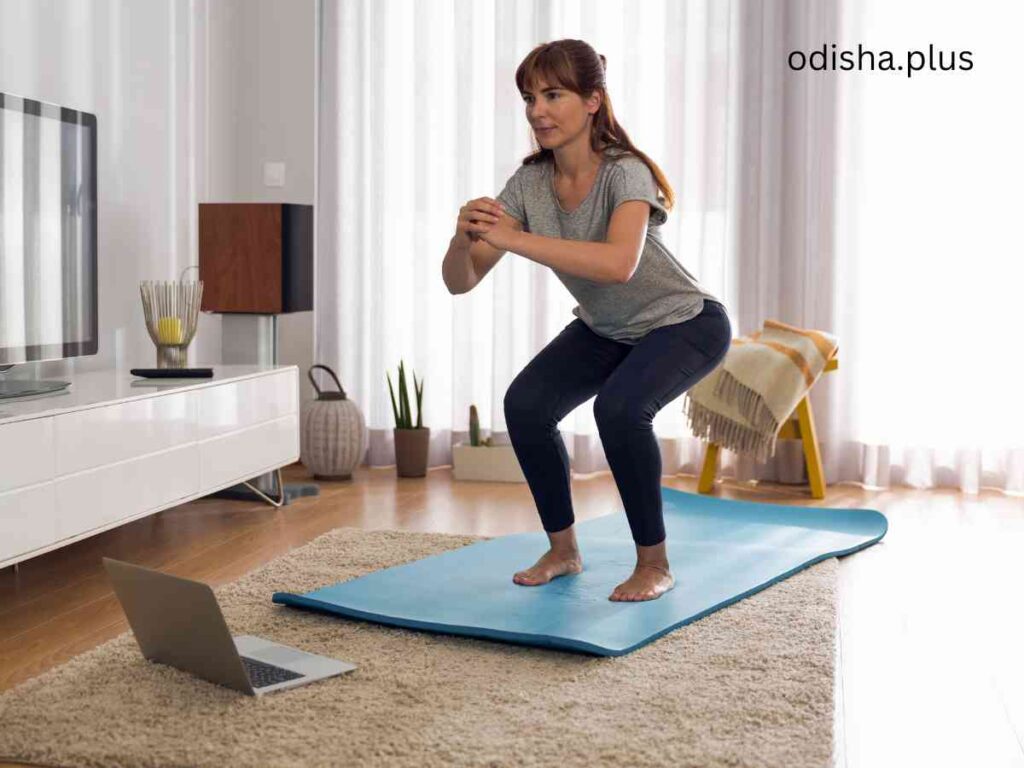Irrespective of age, incorporating exercise into one’s daily routine is crucial for maintaining a healthy body and mind
OdishaPlus Knowledge Series

Regular physical activity is a potent antidote to a myriad of health issues, including the risk of stroke. According to the World Health Organization (WHO), engaging in at least 30 minutes of moderate-intensity exercise, five days a week, can significantly contribute to overall fitness and well-being.
Age is Just a Number
Exercise is not just for the young; it’s essential for people of all ages.
As WHO states, “Regular physical activity can help prevent or manage many chronic diseases, such as heart disease, diabetes, and some cancers” (WHO, 2020).
For older adults, consulting with a healthcare professional can help tailor an exercise plan that suits their needs and abilities. Even small amounts of physical activity can make a significant difference in overall health.
Find Your Fitness Groove
The type of exercise is less important than the act of getting moving. Whether it’s walking, cycling, running, stretching, or dancing, the key is to find an activity that brings joy and makes you want to stick with it.
As the American Heart Association recommends, “At least 150 minutes of moderate-intensity aerobic activity or 75 minutes of vigorous-intensity aerobic activity or an equivalent combination of both, per week” (AHA, 2022).
Exercise for a Lifetime
Young people should establish a regular exercise habit to set themselves up for a lifetime of wellness. As they age, they can adapt their routine to suit their changing needs.
For older adults, exercise can help combat chronic diseases and the effects of aging. WHO emphasizes, “Regular physical activity can also improve mental health, reduce stress, and increase opportunities for social interaction” (WHO, 2020).
Take the First Step
Incorporating exercise into your daily routine can seem daunting, but starting small can lead to significant changes. Schedule a daily walk, try a new workout class, or invite a friend to join you for a bike ride.
Every step counts, and the benefits of exercise are worth the effort.
Data-Driven Benefits
The evidence is clear:
- Regular physical activity reduces the risk of stroke by 25% (WHO, 2020)
- Exercise lowers the risk of heart disease by 30% (AHA, 2022)
- Physical activity can reduce the risk of depression by 43% (Harris et al., 2006)
Thus, a healthy lifestyle is a holistic approach to living that encompasses various aspects of our daily lives, including physical activity, balanced diet, proper sleep, stress management, and social connections. Exercise finds a key place in a healthy lifestyle, as regular physical activity is essential for maintaining physical function, strengthening the mind-body connection, and boosting mood.
A balanced diet provides the necessary nutrients for energy and overall health, while proper sleep enables the body to repair and recharge. By incorporating exercise, healthy eating, adequate sleep, and stress management into your daily routine, you’re taking a proactive approach to managing your health and setting yourself up for long-term success.
Additionally, nurturing social connections and engaging in activities that bring joy and purpose can further enhance overall well-being. By prioritizing these elements, you’ll be well on your way to living a healthy, balanced, and fulfilling life.
Exercise is a powerful tool for maintaining optimal health, regardless of age. By incorporating physical activity into your daily routine, you can reduce the risk of chronic diseases, improve mental health, and increase opportunities for social interaction. Find an exercise that brings you joy, and make it a habit. Your body – and mind – will thank you.
(This article has been curated with AI support. Thus, readers should verify facts and exercise caution when applying concepts in real-life situations.)
#HealthTips #ExerciseForAllAges #MentalHealth #PhysicalActivity #FitnessTips #WellnessMantra #StrokePrevention #CardiacHealth #HealthyLifestyle


























